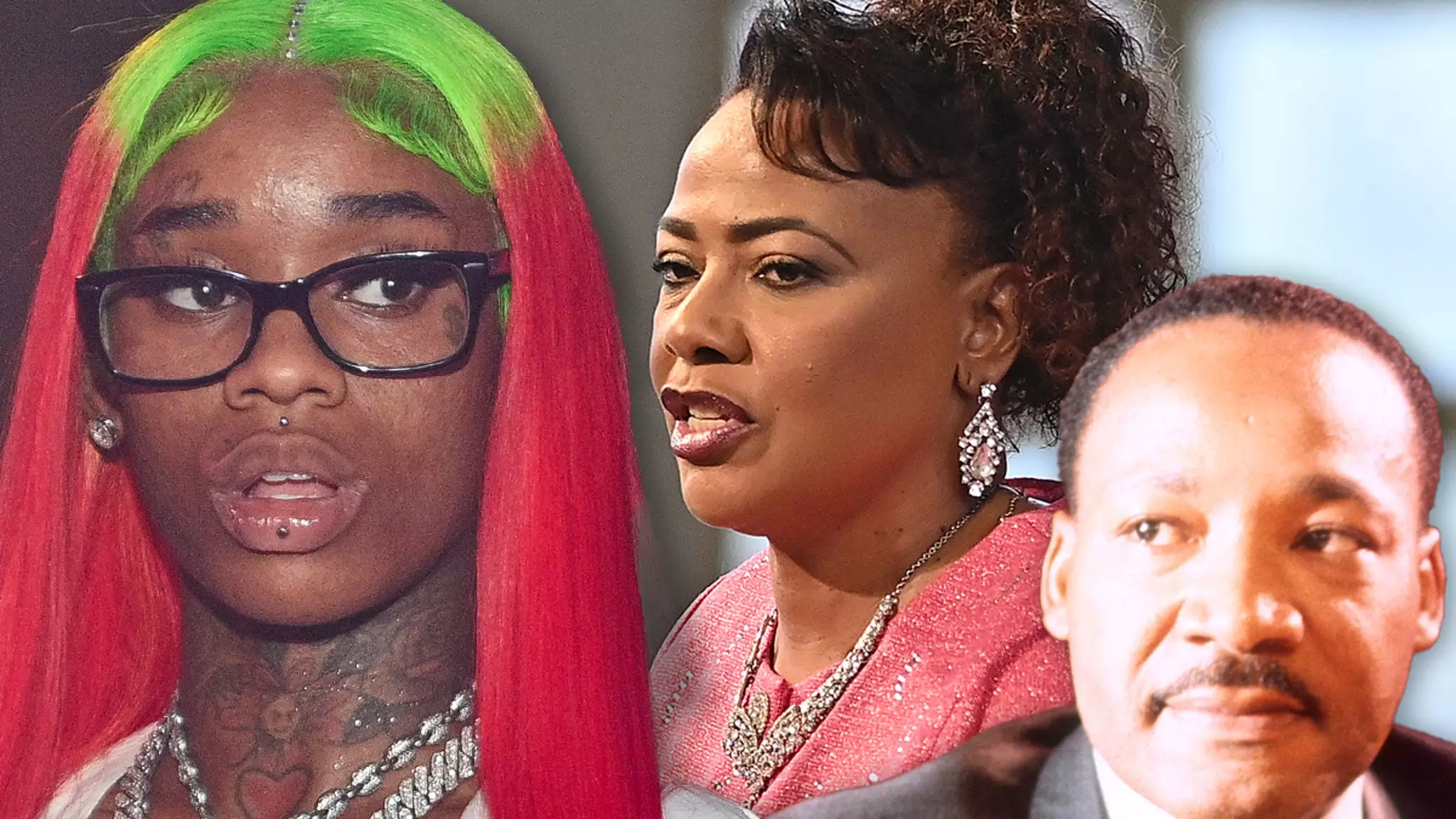In an age where social media has become a battleground for expression and interpretation, some actions prompt intense public scrutiny. Recently, rapper Sexyy Red stirred controversy when she shared an AI-generated image depicting herself dancing with the iconic civil rights leader Martin Luther King Jr. This bold illustration, alongside another photo of her in a striking red dress, was part of her tribute to Martin Luther King Jr. Day. While the intention may have been to celebrate, the execution raised eyebrows and evoked strong dissent from King’s family.
The response from Bernice King, MLK’s youngest daughter, was swift and pointed. She condemned the images as “intentionally distasteful, dishonoring, deplorable, and disrespectful” not just to her family but to MLK’s enduring legacy. This reaction highlights a deeper issue: the intersection of modern celebrity culture with the historical reverence associated with figures like MLK. Bernice’s reasoning, emphasizing her father’s fight for civil rights and the ultimate sacrifice he made, reflects a protective stance over a legacy often co-opted for commercial or provocative purposes. Her words serve as a reminder that some historical figures hold layers of significance that transcend casual depictions in popular media.
Interestingly, the public reception to Sexyy Red’s actions wasn’t unanimously negative. Some voices—in particular, those in the hip-hop community—expressed support for the rapper, suggesting that Bernice should reconsider her critique. Notably, Blueface’s mother publicly called for an apology, indicating that the conflict may mirror broader generational divides in interpreting cultural tributes. While some view the tribute as disrespectful, others see it as a form of modern artistic expression—a gesture of admiration, albeit flawed.
Following public backlash, notably from Bernice King, it appears Sexyy Red took note and deleted at least one of the controversial images. This action raises questions about accountability in the digital age. How do artists balance the freedom to express themselves with the potential for misinterpretation, particularly in sensitive cultural narratives? In a world intertwined with social media, where messages can go viral in moments, celebrities must navigate a complicated landscape where their work can be interpreted in countless ways.
Ultimately, this incident underscores a crucial point in our contemporary society: the necessity of understanding context and respecting legacies that have shaped societal progress. The strong reactions serve not only to protect historical figures but to engage a broader dialogue about how cultural expressions can intersect, sometimes contentiously, with historical narratives. As we commemorate figures like Martin Luther King Jr., it is essential to approach such tributes with mindfulness, recognizing the significance they carry.

